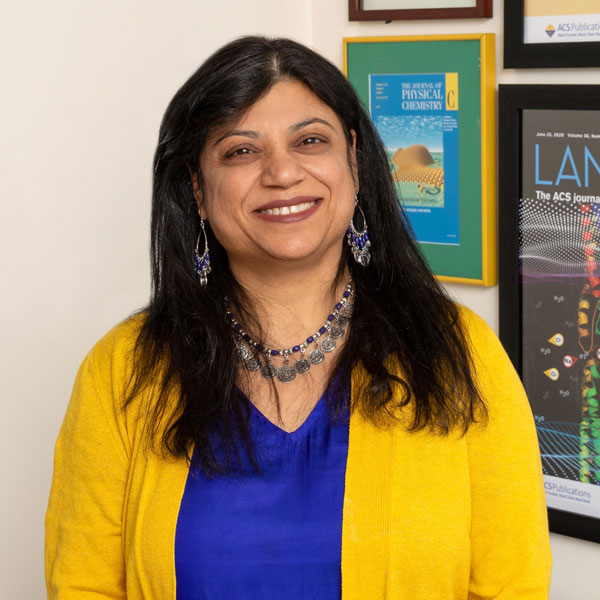Finding pathways across biological barriers for delivering life-saving drugs is entering a new era with the rapid advancement of computational resources. My research group focuses on developing simulation methods to elucidate the interfacial phenomenon associated with biological barriers that play a role in life-threatening diseases such as Alzheimer’s, cancer, and chronic infections. Our goal is to influence this experimentally dominated research field by providing mechanistic, structural, and molecular insights into the barrier functions that were computationally unattainable before our work. In the past few years, we have made breakthroughs in understanding the molecular architecture of the blood-brain barrier and developed strategies to enhance the barrier’s permeability for the treatment of neurodegenerative disease. In my talk, I will elaborate on the computational methods we have developed to investigate the blood-brain barrier and provide a perspective on the treatment of Alzheimer’s disease.

Shikha Nangia received her Ph.D. in Chemistry from the University of Minnesota, Twin Cities, in 2006 and completed her postdoctoral training (2006-2009) at Pennsylvania State University. In 2009, she joined Syracuse University as a Research Professor in the Biomedical and Chemical Engineering and Chemistry Department. She started her independent research career in the Department of Biomedical and Chemical Engineering in 2012.
Dr. Nangia’s research uses computational approaches to overcome biological barriers and enhance drug delivery. Her research projects include exploring treatments for Alzheimer’s and Parkinson’s diseases by examining the molecular architecture of the blood-brain barrier. Her research has received substantial funding from the National Science Foundation (NSF) and the National Institute of Health (NIH).
Dr. Nangia has also received numerous honors and awards for her research—NSF CAREER (2015), NIH ESTEEMED grant (2022), ACS OpenEye Outstanding Junior Faculty Award (2016), and ACS WCC Rising Star Award (2022). For teaching and mentoring, she was awarded the College Technology Educator of the Year (2016), Meredith Teaching Recognition Award (2017), Dean’s Award for Excellence in Education (2017), and the Chancellor’s Citation Award for Outstanding Contributions to Student Experience and University Initiatives (2019), and Excellence in Graduate Education Faculty Recognition Award (2022) at Syracuse University. She is an associate editor of ACS Applied Bio Materials.